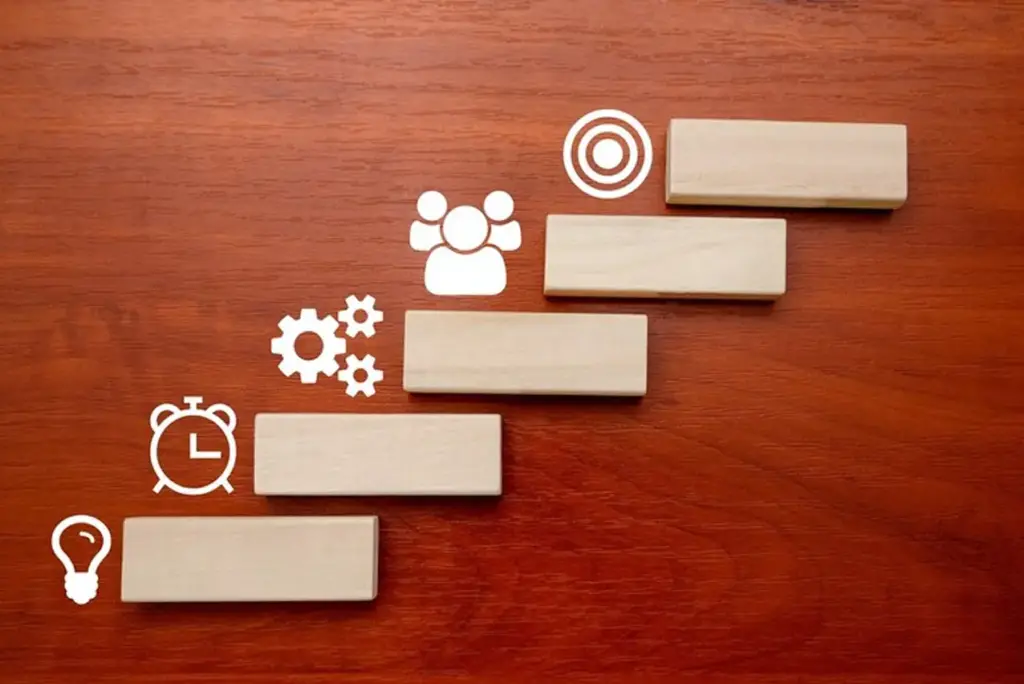Vansh Bhatnagar
Jul 18, 2025

Key Highlights
Underlines how contract milestones function as pivotal checkpoints to oversee project progress and maintain contract compliance.
Discusses the significance of payment milestones across industries to drive timely completion.
Reveals how contract management software enhances milestone tracking with alerts and centralised dashboards.
Stresses the need for clearly defined timelines, specific deliverables, and realistic milestones to prevent ambiguity.
Simplifies the complexities of milestone management for large projects involving multiple stakeholders.
Highlights how robust milestone management fuels overall project success and financial reward.
Transitioning from these highlights, let’s unpack the concept of contract milestones further.
Contract milestones help keep project progress smooth. They ensure that everyone does what they need to do by breaking a project into smaller steps on a timeline. Each stage lets people focus on clear goals like payment terms, tasks to be completed, and what should be delivered. When you split a contract into easy-to-handle pieces, you can stay in control, watch out for risks, and get the results you want.
This works for both big and detailed projects. Good milestone management also means that teams and stakeholders work together better and follow the rules. Now, let’s look at what a contract milestone means and how milestones and deliverables are set up for a project.
Defining Contract Milestones

Contract milestones are clear points that show big moments during a project. These checkpoints line up with important stages, like when deliverables are finished or when it's time for payment. This helps the work move forward to plan and not get lost in ambiguity. When you have a contract, milestones tell you when a task is done or when payments will be made.
For example, in software development, milestones can include completing a prototype or concluding beta testing. Having these clear points make it easier to track how things are going. It also helps both sides agree on what needs to get done and by when. Milestone management makes sure that there is a set timeline, so everyone knows what to do next. This way, the project is more likely to be a success.
Key Characteristics of Contract Milestones
Good contract milestones have a few clear qualities that help with checking and finishing work:
Clarity: Milestones need to be clear, with no confusion. They should show the specific deliverables and say when each one must be completed.
Realistic Targets: Timelines need to be achievable, which is important for large projects or work that has many steps. This stops people from feeling too much pressure.
Alignment: Each milestone must match the bigger goals in the contract.
Collaboration: All the stakeholders need to understand what is needed. Working together helps everything go more smoothly and everyone shares the responsibility.
Milestones are like a way to communicate in a contract. They help cut out ambiguity and make sure people focus on achievable tasks. This means what the business plans line up well with what the stakeholders want. When you set and track contract milestones in line with the contract’s goals and deliverables, contract compliance gets better. Good planning and sticking to these same ideas helps large projects and other projects succeed and reach their goals on time.
Common Types of Contract Milestones
Contract milestones come in various types, each tailored to meet specific project needs. They include progress, delivery, completion, and payment milestones. Here’s a glance at their functionalities:
Milestone Type | Description |
|---|---|
Progress Milestones | Checkpoints throughout the timeline to assess ongoing work and regulate delays. |
Delivery Milestones | Signify tangible deliverables, often tied to payment terms and deadlines. |
Completion Milestones | Mark the end of a major phase or project, serving as a reference point. |
Payment Milestones | Connect payment terms to certain milestones to ensure financial discipline. |
These milestones add structure to diverse contracts like freelancing agreements or construction projects. For example, in construction, milestones like completing structural framing or roofing link work phases to compensation. Choosing the right type allows stakeholders to manage and evaluate projects more effectively.
Related Article: Contract Compliance: Importance & Best Practices
The Role of Milestones in Contract Management

In contract management, milestones are important markers that help keep track of progress and make sure everyone follows the rules of the contract. They help project managers see if the work matches the goals and take action if there are any delays. When you link milestones to specific deliverables and deadlines outlined in the statement of work, it becomes much easier to ensure contract compliance.
For complex projects that have many steps, milestones make the work easier to follow. They help stakeholders work well together. Milestones also build accountability by giving a clear plan to keep up the quality and make sure nothing is missed in the work.
Next, we will talk about ways to keep track of progress and deliverables smoothly.
Tracking Progress and Deliverables
Tracking contract milestones helps projects stay on track with what people expect. Here are some ways to do that:
Automated Alerts: Contract management software gives alerts on due dates for every milestone. This stops anyone from missing key checkpoints.
Centralized Dashboards: Platforms for collaboration let all stakeholders track milestones in one place. This gives everyone better info and control for each contract.
Besides using alerts and dashboards, managers can look at milestone patterns with performance analytics. These insights help them spot where things are slowing down or where resources are lacking. Then, the team can adjust and use what they have the right way to keep moving forward. With tracking tools that fit a project’s needs, you can manage even large contracts with lots of unknowns.
Triggering Payments and Other Obligations
Payment milestones help keep the money side of things in order. They connect payments to getting tasks done, which helps make sure the job is finished on time and of good quality. For example, an upfront payment makes sure the team has the needed resources before the contractor starts work. Other payments come only after hitting each milestone.
Milestones are not just about getting paid. They also bring in other duties, like reviews and audits. By clearly linking these tasks to milestone completion, people do not make as many mistakes, and there is less chance for things to go wrong at important checkpoints. Payment milestones push teams to do their best work so they get their rewards on time.
When you plan these milestones well, there is more accountability for everyone. This way, both money and progress at each checkpoint fit together smoothly.
Related Article: Crafting the Perfect Statement of Work (SOW)
Essential Elements of Effective Contract Milestones

Good contract milestones depend on good planning and clear details. They need to be easy to understand and simple to measure. This way, everyone knows what is expected. If the deliverables or dates are not clear, people can miss out on good chances or harm their working relationship.
For large projects, it is important to set timelines that work in real life. This can help stop delays and let the work go on without any problems. When you make sure that milestones fit with the main goals of the contract and leave some room for changes, risks can go down.
Let’s look at what makes good milestones that help you hit deadlines and reach your goals.
Setting Clear and Measurable Criteria
Ambiguity can make it hard to carry out a contract. Setting clear milestones helps everyone know what to do and when to do it. These milestones should include simple, measurable goals, like what the deliverables should do or what percentage should be done at each step.
For example, a milestone for an influencer campaign could state the post type and the due date. This way, everyone knows what needs to be done and when it should be finished. By linking each milestone to real, clear outcomes, all stakeholders keep their focus and know what they need to do.
Managing milestones in this way builds trust and keeps all stakeholders working together. It also helps avoid confusion and disagreements. When there is transparency in what is expected, both sides know their duties. This leads to better results and makes sure there are no missed steps in the completion of deliverables.
Establishing Realistic Timelines
Contract Timelines are important for reaching every milestone. If you set goals that are not possible to meet, it can make people feel stressed. This also makes delays more likely, and it can even break the rules of a contract. Large projects need to have their deadlines divided into smaller parts. This helps make the work easier to manage if big changes happen.
For example, when you work on software development, you can set milestones over several months. You might need extra time for things like building the first version, checking for mistakes, and putting out the final product. Working this way helps each part of the job stay on track. It also means you can fix problems without ruining the whole plan for the project.
Clear deadlines help everyone know what they are supposed to do. When each team does their part on time, the work follows the contract and has a better chance for long-term success.
Related Article: Contract Review Checklist: An Effective Guide
Best Practices for Managing Contract Milestones

Managing milestones needs both the right tools and people working together. You need to use technology to get alerts and have all tracking in one place. This way, everyone is always up to date.
Also, it is important for all stakeholders to talk honestly. Good communication helps people work as a team and handle any changes that come up. With clear updates and teamwork, you can make sure contract milestones move ahead well. If you use a group platform for milestone tracking, it’s easier to see the status and change things when needed. This keeps the work organised and helps everyone do their part.
Now, let’s take a closer look at new technology for even better milestone tracking.
Leveraging Technology for Milestone Tracking
Modern contract management uses new technology to get things done better:
Automated Alerts: Advanced systems help by letting stakeholders know when key milestones or due dates are coming up. This way, they can keep track and avoid missing anything important.
AI Integration: Artificial intelligence makes milestone management faster. It pulls out useful info like due dates to help people stay on track.
Performance Reviews: Analytics dashboards show where progress is slow. This helps people spot problems and fix them at the right time.
Real-Time Monitoring: Easy-to-use contract tracking dashboards help keep all contract information in one spot. This makes managing many contracts less stressful and saves time.
With the rise of contract management software, tracking important contract milestones has really changed. Companies now get the benefits of automated ways to work. This leads to fewer errors from doing things by hand and uses resources in a smarter way. By using a tech-first approach to milestone management, they make sure contracts are finished on time and everyone does their part.
Communication and Collaboration Across Teams
Working together makes milestone management easier. When you bring all the stakeholders together—like project managers, legal teams, and vendors—everyone knows their roles in the contractual relationship. This keeps things clear for all.
If communication is open, teams are able to spot risks, see any holdups, and work on deliverable quality before problems get too big. For instance, when teams do regular milestone check-ins on large building projects, there are fewer mix-ups during big steps such as digging or finishing indoors.
Using collaborative software helps all teams keep up with each other’s progress. This way, people hold each other responsible and reach every milestone in good time. Communication is not just useful—it’s what makes the project work.
Related Article: Effective Contract Management: Key Strategies for Success
Conclusion
To sum up, it is important to know about contract milestones if you want projects to go well. When you lay out each milestone and set simple ways to check them, you can keep better track of your progress. This also helps make sure everyone does what they are supposed to do. Using the best ways to track milestones, like making use of new technology and keeping all teams talking to each other, will help make your contract management even stronger.
As you try these ideas, keep in mind that you have to be ready to change and always look for better ways to handle milestones, because contract milestones can sometimes be tricky. If you want to know more or need help with contract management, tracking, or milestones, you can reach out for expert advice.
Frequently Asked Questions
What is a contract milestone in simple terms?
A contract milestone is a set point in the contract. It shows when a certain part of the work or a goal is finished. This can be about a phase, a deliverable, or a special event in the contract. Often, a milestone is linked to when tasks are done and when payment terms need to be followed. This helps make sure both sides keep up their part of the contractual relationship and stay on track for completion.
How do contract milestones impact payments?
Contract milestones are often set for when to pay based on finishing a task or part of the work. For example, when a team makes something like a prototype, this can start a payment milestone. This helps people work on time and gives them a reason to finish the job. Payment terms, tracking, and completion all be linked, so everyone knows what to do and when they will get paid.
Can milestones be adjusted during a project?
Yes, milestones can change during a project if there are new timelines or things happen that were not expected. This is important for contract management, especially in large projects. When you adjust a milestone, it helps the timeline stay real. It also makes sure everyone keeps following the rules and works together throughout the whole contract.
What are common mistakes to avoid with contract milestones?
Do not let there be any confusion in your milestone management. Set clear deliverables and make sure due dates are right. If you do not use tracking tools, or if your team or others are not involved, it can slow things down. You need everyone working together, with clear expectations from the start. This helps you avoid errors and stops problems from coming up during any milestone.
Are contract milestones legally binding?
Yes, contract milestones are legally binding. These are to be seen as important checkpoints. They help to make sure there is contract compliance. Each milestone shows what deliverables be due and when they must be done. If you do not meet these timelines or deliverables, there could be consequences in the contractual relationship and its legal terms.
About the Company

Volody AI CLM is an Agentic AI-powered Contract Lifecycle Management platform designed to eliminate manual contracting tasks, automate complex workflows, and deliver actionable insights. As a one-stop shop for all contract activities, it covers drafting, collaboration, negotiation, approvals, e-signature, compliance tracking, and renewals. Built with enterprise-grade security and no-code configuration, it meets the needs of the most complex global organizations. Volody AI CLM also includes AI-driven contract review and risk analysis, helping teams detect issues early and optimize terms. Trusted by Fortune 500 companies, high-growth startups, and government entities, it transforms contracts into strategic, data-driven business assets.






